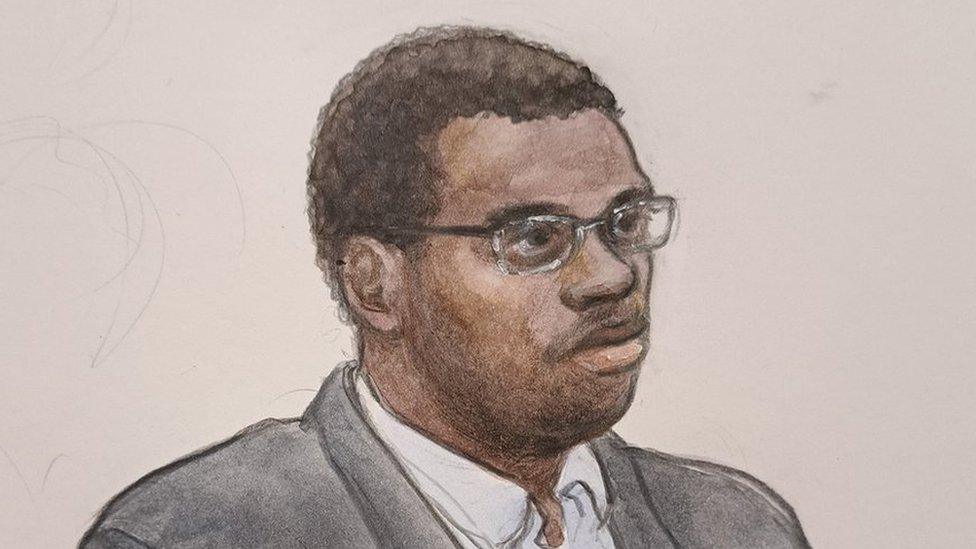Nottingham attacks: The questions that remain around Valdo Calocane
- Published
Nottingham attacks: Victims' families react to triple killer's sentence
When Valdo Calocane was handed a hospital order for killing three people in Nottingham and attempting to kill others, it prompted a furious response from the victims' families.
As well as questioning the sentence passed down, they have raised concerns about interactions the killer had with health services and the police prior to the attacks, as well as how the Crown Prosecution Service (CPS) handled the case.
Why was Calocane sentenced for manslaughter, and not murder?
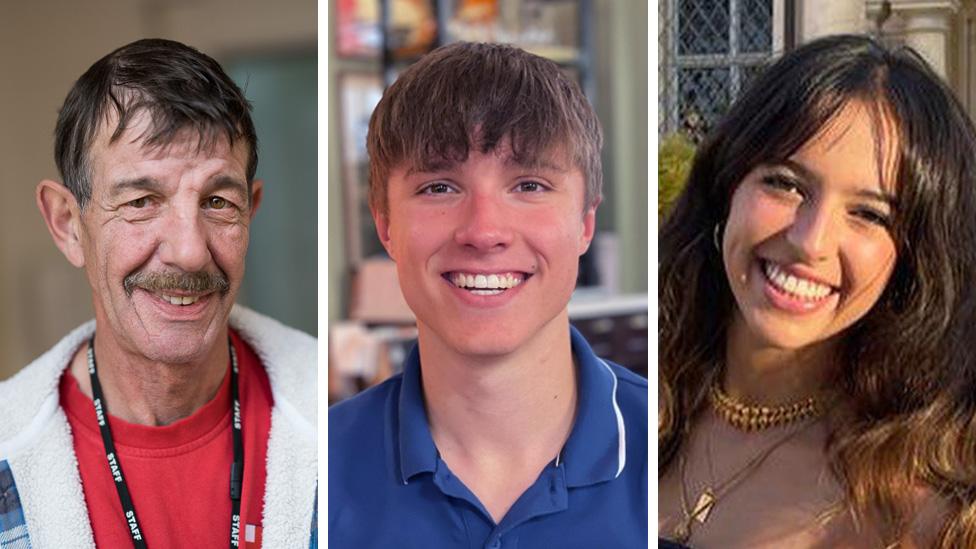
Ian Coates, Barnaby Webber and Grace O'Malley-Kumar died at the scene of the attacks
Calocane had originally been charged with three counts of murder and three of attempted murder.
However, while in custody, it emerged he had been transferred to a "secure hospital setting" and assessed by three forensic psychiatrists.
They all agreed the 32-year-old had been suffering from paranoid schizophrenia at the time of the attacks, which "impaired his ability to exercise self-control".
The CPS "took the unusual step" of asking a fourth expert to review those reports, and after they agreed with the findings, prosecutors concluded there was "no realistic prospect of conviction for murder".
Calocane's plea of manslaughter on the basis on diminished responsibility was submitted on 28 November, and accepted by prosecutors on Tuesday.
The decision to accept surprised many who assumed he would face a murder trial.
James Coates, the son of school caretaker Ian Coates - who was stabbed to death on his way to work - said Calocane had "made a mockery of the system" and "got away with murder".
Following sentencing, the CPS said: "Diminished responsibility is only a partial defence to murder. It is for the defendant to prove that it applies.
"In this case, the evidence that Valdo Calocane's actions and self-control were significantly impaired by paranoid schizophrenia, a serious mental health condition, was compelling."
Who was supposed to be looking after Calocane?
Nottingham Crown Court heard Calocane's mental illness began in 2019, and he had been detained under the Mental Health Act at a psychiatric unit in Nottingham four times since May 2020.
On each occasion, he was discharged - the final time in February 2022.
He was prescribed anti-psychotic medication but stopped taking it, which the prosecution said led to a further decline in his mental health.
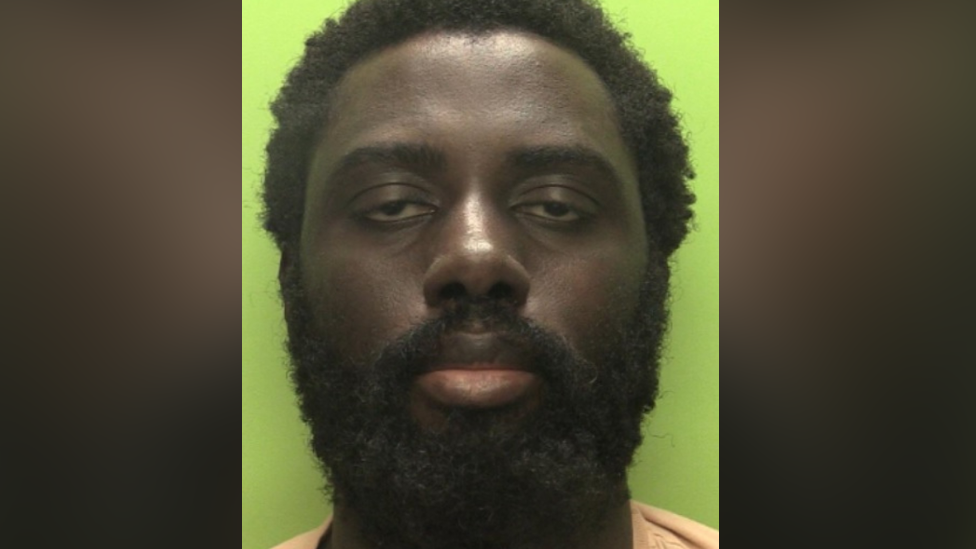
Valdo Calocane, a court heard, travelled to the MI5 headquarters to try to stop them controlling him
Dr Sanjoy Kumar, the father of victim Grace O'Malley-Kumar, said: "While we have never questioned this man's diagnosis, the lack of toxicology, contemporaneous mental health assessment, as well as missed opportunities to divert his lethal path will forever play on our minds and this requires further review."
Nottinghamshire Healthcare NHS Foundation Trust said it had "robustly" reviewed its interactions with Calocane.
Chief executive Ifti Majid said: "If a patient no longer engages with our services and support and they do not meet criteria to be detained under the Mental Health Act, they are discharged back to the care of their GP and can be referred back into our services at any time."
NHS England is planning a major investigation into the case.
Why was Calocane not arrested, despite a warrant being issued?
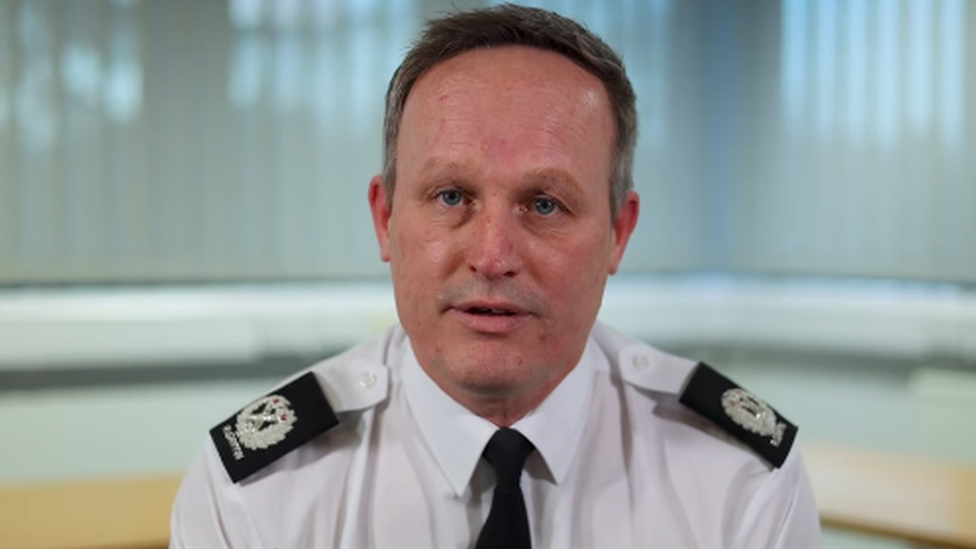
Assistant Chief Constable Rob Griffin said he had personally reviewed the case
It has emerged officers from Nottinghamshire Police had failed to detain Calocane after an arrest warrant was issued in September 2022, when he failed to appear in court following an assault on an officer.
On Wednesday, Assistant Chief Constable Rob Griffin said: "I have personally reviewed this matter and we should have done more to arrest him.
"However, because of the circumstance prevailing, at the time of the alleged assault, in my opinion it is highly unlikely that he would have received a custodial sentence.
"Of course, an arrest might have triggered a route back into mental health services, but as we have seen from his previous encounters with those services, it seems unlikely that he would have engaged in this process."
This led Emma Webber, mother of victim Barnaby Webber, to tell Mr Griffin he had "blood on his hands".
It has also been confirmed that while he was wanted for assault, Calocane was reported to police for attacking two workmates at a warehouse but was not arrested.
How much were the families consulted?
Mrs Webber has also criticised the CPS over what she sees as a lack of communication.
She said: "The CPS did not consult us as has been reported - instead we have been rushed, hastened and railroaded."
Mrs Webber said the first meeting with them was on 24 November.
"We were presented with a fait accompli that the decision had been made to accept manslaughter charges," she said.
"At no point during the previous five and a half months were we given any indication that this could conclude in anything other than murder."
Footage shows timeline of Nottingham attacks and killer's arrest
A CPS spokesperson said: "The CPS offered to meet with the families following our decision to charge. This offer was open-ended, whenever the families were ready to do so.
"We did meet with the families of Grace and Barnaby when they took up that offer following receipt of the first three psychiatric reports.
"The CPS again met with them both in early December, this time in person at a location near to their home. Further offers to meet all the families have been made throughout."
What will happen next?
Calls for a public inquiry have been backed by Labour leader Sir Keir Starmer.
He said: "I am very worried by what appear to be a number of points at which action could have been taken that would have prevented this happening."
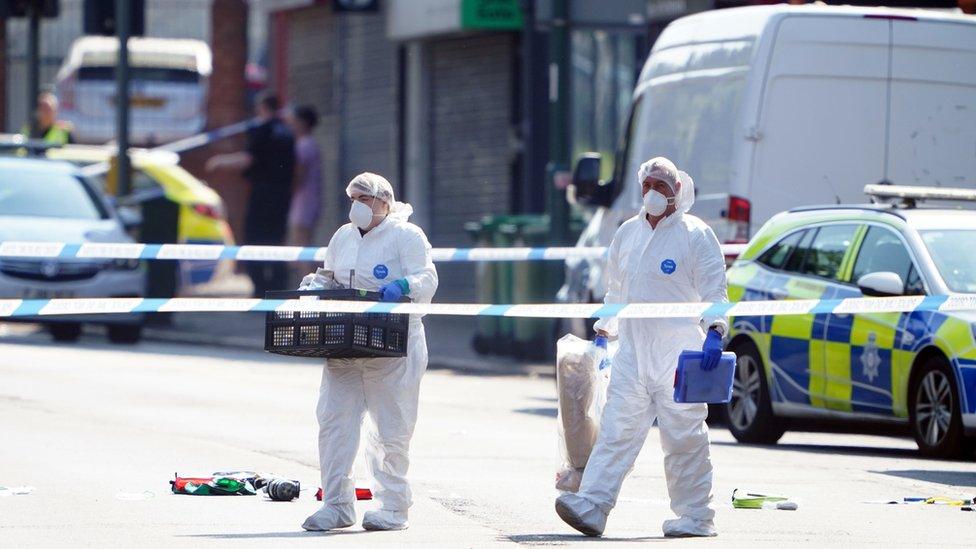
Three people died and three more were injured in the attacks
On Thursday, Prime Minister Rishi Sunak declined to commit to an inquiry.
On Friday, Mr Sunak's spokeswoman said: "We believe that it's important that as the first action, that the relevant agencies look back and ensure that all the proper processes were followed and that reasonable steps that could have been taken were taken to ensure that where there are lessons to be learned, we do so."
Meanwhile, the attorney general is due to consider whether judges should review the sentence, after a referral arguing the sentence was too lenient.

Follow BBC East Midlands on Facebook, external, on X, external, or on Instagram, external. Send your story ideas to eastmidsnews@bbc.co.uk.
Related topics
- Published26 January 2024

- Published26 January 2024
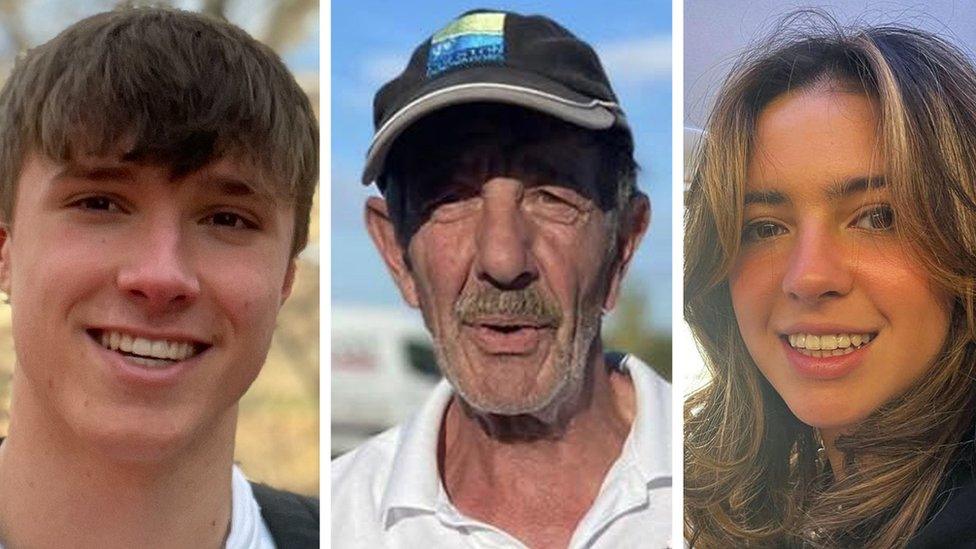
- Published25 January 2024
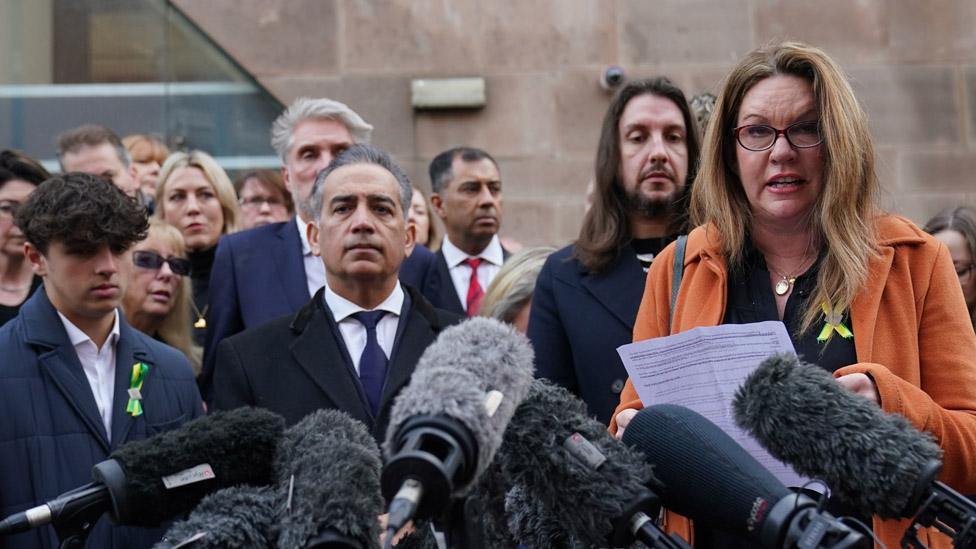
- Published25 January 2024
